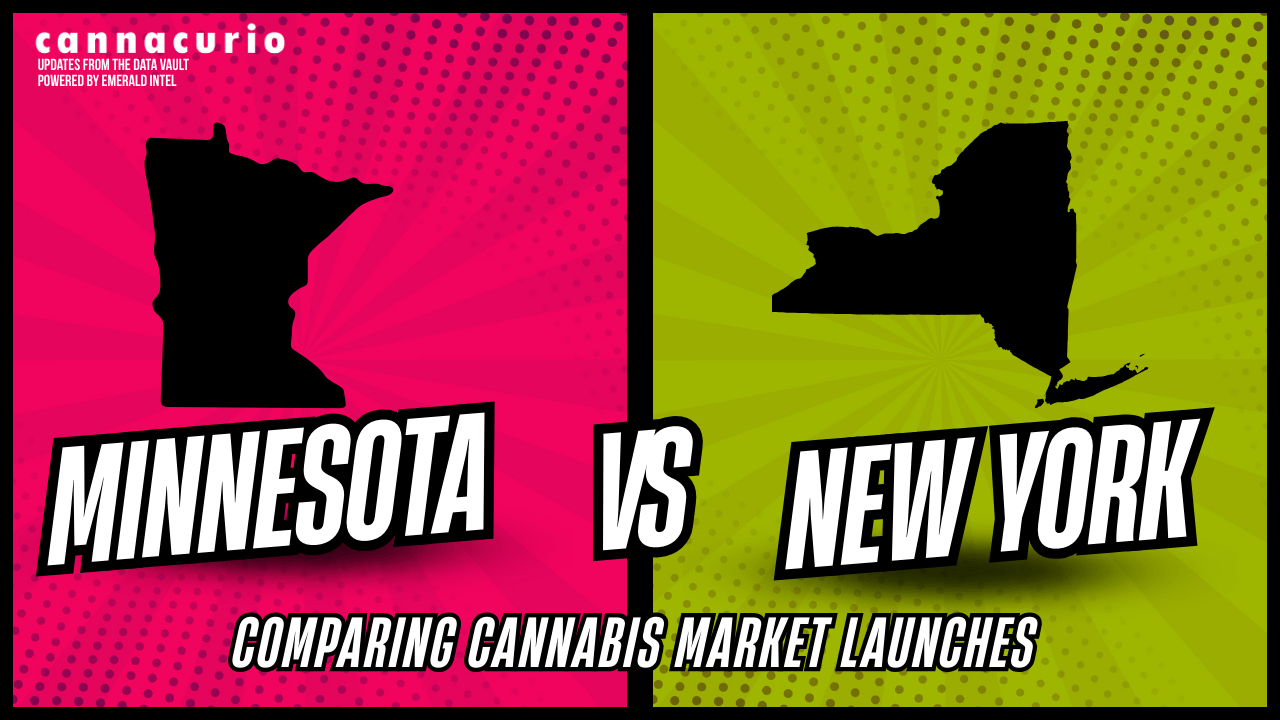
Cannabis Onsite Consumption Licenses and Social Use Rules
In May 2019, Alaska became the first state to allow cannabis dispensaries to apply for onsite cannabis consumption licenses. While several states have considered onsite cannabis consumption licenses and social use rules over the years, Alaska became the first to permit it on a statewide level.
Previously, some states did allow local municipalities to determine whether or not social use or onsite consumption of any type of cannabis product would be permitted. As a result, cities like West Hollywood, California and Denver, Colorado grew reputations for offering public-friendly cannabis consumption areas despite the fact that onsite consumption licenses were not available from the state.
However, even in cities where onsite consumption is allowed, there are strict rules and regulations that businesses and consumers need to follow. In addition, states that have issued onsite consumption licenses at the state level typically allow local municipalities to further regulate or ban onsite consumption.
When it comes to the current environment related to onsite consumption licenses and social use of cannabis across the United States, following are some key points that stand out.
Onsite Consumption Licenses Come with Many Restrictions for Businesses
When states pass onsite cannabis consumption laws, people notice, and many in the pro-cannabis community get excited. However, it’s important to look at the rules related to these business licenses to get a better understanding of what they do and don’t allow.
For example, in Alaska, retail businesses can apply for a special onsite use endorsement, but the designated consumption area must be in a separate space than the retail space. There must be a physical separation using a wall or an outdoor area with a secure door. The law can also be modified in the future to further limit the types of consumption allowed.
Onsite consumption licenses can also be highly restrictive when they’re issued by cities rather than states. Consider the Cannabis Consumption Area Business Licenses available in West Hollywood, California. The license application includes dozens of restrictions, and some of those restrictions can be quite costly for businesses. For example:
- A neighborhood security guard patrol is required for a two-block radius surrounding the dispensary during all hours of operation.
- License holders may not sell alcohol or tobacco or allow onsite consumption of alcohol or tobacco products by customers or employees.
- The structure of the consumption area must be soundproofed so interior and exterior noise cannot be heard beyond the property line.
- If the consumption area is on the same premises as a medical or adult-use retail business, then:
- The space for onsite consumption cannot exceed 50% of the total space and cannot exceed 1,500 square feet in total.
- The cannabis consumption area must be a well-ventilated and private area that is partitioned off from access to any other areas of the retail establishment.
- The cannabis consumption area must be designed to prevent the flow of smoke to any other area of the retail establishment.
Keep in mind, these are just a few of the rules that applicants for onsite consumption licenses in West Hollywood must comply with, and many of them require significant monetary investments by license holders – both at the time of application and on an ongoing basis.
Onsite Consumption Licenses May Be Hard to Get
As with all cannabis business licenses, applicants must meet a long list of requirements to win a license, and in Massachusetts, where social consumption licenses were approved in September 2019, two new business types were added to the mix (social equity and economic empowerment), which make the licensing process even more challenging.
For the first two years that onsite consumption licenses will be awarded in Massachusetts, they will only be issued to businesses that meet the criteria to be considered “social equity” or “economic empowerment” applicants.
The social-use license program in Massachusetts will start with a pilot program for 12 municipalities, and each municipality will need to opt into the program in order to participate. The Massachusetts Legislature is currently working on the details and processes for municipalities.
Another obstacle to getting an onsite consumption license is the required fees. For example, in West Hollywood, California, the application fee alone is $4,035. In Massachusetts, applicants must pay a $1,500 application fee plus a $10,000 annual renewal fee. However, social equity and economic empowerment business applicants can have these fees reduced or waived.
Two Steps Forward for One State and One Step Back for Another
Since November 2016, businesses could apply for onsite cannabis consumption licenses in Denver, Colorado. The Cannabis Consumption Establishments and Special Events License is part of a small-scale social-use program in the city, but beginning in 2020, onsite consumption licenses will be available throughout the state in municipalities where local governments opt in.
On May 28, 2019, Colorado’s governor signed a law allowing businesses to apply for social use spaces where residents and tourists will be able to use cannabis products in licensed Marijuana Hospitality Establishments. The new license opens the doors for social use in dispensary tasting-rooms, at special events, and in tour buses and limousines.
While the new license type was an important step forward for the state, it does include restrictions, including one that does not allow an establishment to hold both a liquor license and a Marijuana Hospitality Establishment license.
As Colorado opens the doors to increased social use, California has taken the opposite approach. In September, California lawmakers banned smoking cannabis in party buses and limousines.
Key Takeaways about Onsite Consumption Licenses and Social Use Rules
Bottom-line, onsite consumption licenses are typically highly restrictive and expensive. In addition, they can be limiting to other parts of a business as is the case in states that require liquor and onsite cannabis consumption licenses to be mutually exclusive.
However, onsite consumption licenses are still new, and there will surely be changes to the rules associated with them in the coming months and years.
As these new licenses are issued across multiple states, Cannabiz Media will be tracking them in the Cannabiz Media License Database. Schedule a free demo and see how current, reliable license data can help you reach your business goals.
Need more insights?



.png)